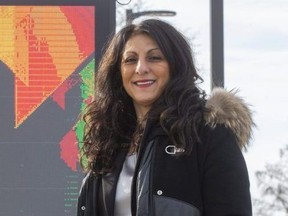
In the face of a controversial new policy at the Toronto Catholic District school board banning all books with the n-word by non-Black authors, local school boards were asked if they will follow suit. While the London District Catholic school board declined to comment, the Thames Valley District school board provided an update on its protocols surrounding the use of racial slurs in the classroom.
Advertisement 2
Article content
Article content
How does the Toronto Catholic District board’s new protocol compare to Thames Valley’s?
The Toronto Catholic District protocol bans all books by non-Black authors that contain the racist slur known as the n-word. It also bans the word from being spoken except by Black students speaking in a friendly exchange.
At the Thames Valley board, when a teacher wants to use a book with the n-word, the board asks that the book be used as an “option choice book.” That means students can select another book, so that it’s not mandatory, said Purveen Skinner, superintendent of student achievement. Teachers also are prohibited from saying the n-word out loud.
What books are under scrutiny?
Classics such as Lord of the Flies, Of Mice and Men and The Adventures of Huckleberry Finn would be prohibited in Toronto Catholic District school classrooms, and optional in Thames Valley schools. Also making the list is To Kill a Mockingbird, the main theme of which is racial injustice, and Underground to Canada. However, in the Toronto Catholic District board books by Black authors such as The Hate U Give are allowed.
Advertisement 3
Article content
What is the Thames Valley protocol on the n-word?
Skinner said the board developed a resource in 2020 that ended the use of “any racial slurs or epithets in any form whether in music form or reading or uttering or quoting because we know that causes a great deal of harm.”
The decision is grounded in human rights protocols, Skinner said.
“We made it very clear, with all the staff that everyone has an unequivocal obligation,” she said. “It was rolled out with a tool to support educators.”
How does the board enforce it?
Skinner said the board encourages teachers “to support intentional thinking when it comes to resources about what students are putting in front of them.
“We know that slurs are never neutral, factual or descriptive – they do not enhance communication or understanding either spoken or written,” she said.
Advertisement 4
Article content
If a teacher uses a book with the n-word, the board asks it to be used as an “option choice book,” meaning students can select another book, Skinner said.
What the board looks for in choosing books
Teachers are looking for books that are “culturally safe” and represent a variety of students and types of people including the students in their classrooms, Skinner said. They are also looking for authors who have written about a lived or living experience.
Books with “recent and appropriate terminology because we recognize that language is always changing” are given the green light, she said.
Does the ban extend to libraries?
No. Thames Valley schools are responsible for selecting their own resources for their libraries and no demands have been made to remove books that potentially may contain racial slurs, Skinner said.
It is unclear if the Toronto Catholic District ban extends to the board’s libraries.
Recommended from Editorial
Article content

